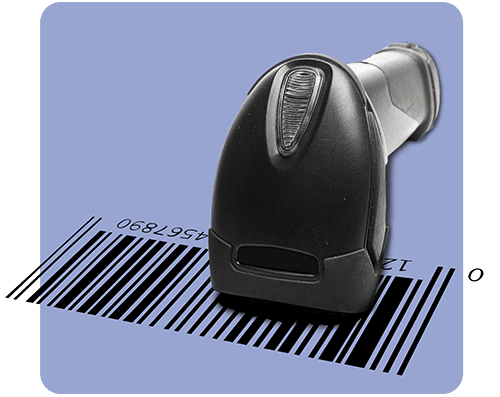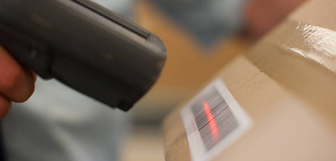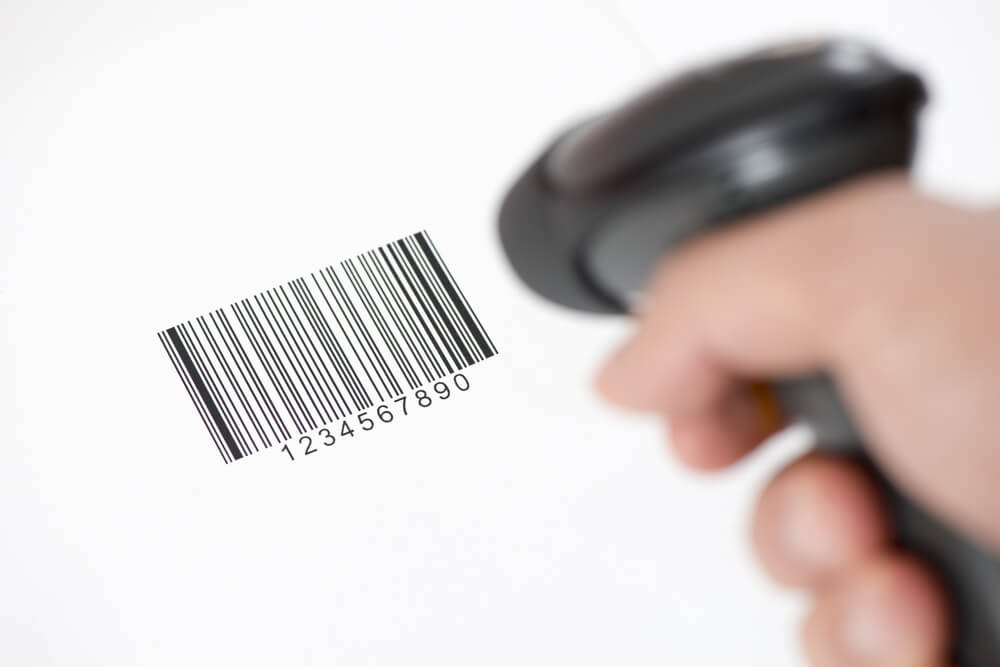Why Barcode Scanners Are Necessary for Modern Retail and Warehousing
In the swiftly evolving landscape of retail and warehousing, the assimilation of barcode scanners has ended up being a crucial element in simplifying operations and improving precision. By automating data entry procedures, these tools not only reduce human mistake yet also dramatically improve inventory administration and check out efficiency. As services make every effort for competitive advantage, recognizing the complex benefits of barcode modern technology reveals its important role in enhancing source allocation and promoting durable supplier partnerships. The ramifications of these innovations increase better questions concerning the future trajectory of barcode technology and its influence on sector standards.
Benefits of Barcode Scanners
Barcode scanners offer various benefits that substantially boost functional efficiency in retail and warehousing settings. The automation of data access refines eliminates the mistakes generally related to hands-on input, leading to boosted precision in inventory monitoring and sales deals. With the ability to quickly check products, businesses can quicken check out times, improving the customer experience and lowering delay times.
Moreover, barcode scanners promote real-time information collection, enabling prompt updates to supply degrees and sales records. This capability makes it possible for businesses to react immediately to modifications popular and maximize stock levels, minimizing excess inventory and minimizing stockouts. In addition, the assimilation of barcode scanners with stock management systems streamlines procedures such as order satisfaction and product returns, better boosting operational effectiveness.
Cost savings are one more crucial advantage. By minimizing labor costs related to hands-on inventory monitoring and lessening errors that can bring about economic losses, barcode scanners add to overall productivity. Their simplicity of usage and transportability make them obtainable for staff training, guaranteeing that workers can swiftly come to be skillful in their procedure. Overall, the implementation of barcode scanners is a tactical financial investment that generates substantial returns in efficiency and operational excellence.
Enhancing Stock Monitoring
Efficient supply management is essential for keeping functional efficiency in retail and warehousing settings. Barcode scanners play a crucial role in this procedure by streamlining the tracking of inventory degrees, item places, and stock movements. By automating data capture, these tools decrease human error, bring about even more precise stock documents.
Making use of barcode scanners allows real-time exposure right into stock quantities, permitting organizations to make informed choices pertaining to reordering and supply turning. This immediacy helps avoid overstocking or stockouts, both of which can adversely affect customer contentment and revenue margins.
Moreover, barcode scanning facilitates reliable supply audits. With quick scanning abilities, personnel can carry out inventory checks swiftly, guaranteeing that disparities are identified and remedied without delay. Enhanced supply precision not just supports operational performance yet likewise enhances relationships with vendors, as precise data can bring read this article about much better arrangement terms and enhanced order gratification.

Improving Checkout Effectiveness
As customers progressively require quicker and more effective buying experiences, boosting checkout processes has actually become a leading concern for stores. Executing barcode scanners plays an essential function in this undertaking, considerably streamlining the deal process. By enabling cashiers to check products swiftly, barcode innovation minimizes the time invested in each sale, therefore shortening total wait times for clients.
In addition, barcode scanners promote the precise recognition of products, lessening the possibility for mispricing and ensuring that customers are charged appropriately. This efficiency not only improves consumer fulfillment however likewise boosts the retailer's functional efficiency. With the ability to refine numerous products in quick succession, merchants can take care of high volumes of transactions throughout height buying hours without compromising solution high quality.
Additionally, incorporating barcode scanners with point-of-sale systems enables real-time stock updates, supplying important understandings into supply degrees. This immediacy enables retailers to handle supply extra effectively, making certain that prominent products continue to be in supply and lowering the chance of shed sales. On the whole, the adoption of barcode scanning innovation is necessary for boosting check out performance, eventually causing enhanced consumer experiences and enhanced sales for stores.
Lowering Human Mistake
In retail and warehousing settings, the implementation of scanning technology significantly decreases human mistake during transactions. Conventional hand-operated access of item info is prone to errors, including incorrect rates, misidentified products, and data entrance errors. barcodes scanners. Barcode scanners simplify this process by automating the capture of great post to read item data, making certain accuracy and consistency
By using barcode scanners, employees can swiftly scan things instead of by hand inputting details. This automation reduces the risk of human oversight, offering a more dependable purchase process. Studies show that mistakes in stock management can cause costly disparities, affecting supply degrees and client complete satisfaction. Barcode scanning minimizes these dangers by enhancing the accuracy of stock counts and sales documents.
Furthermore, barcode scanners boost liability within the workforce. In general, the fostering of barcode technology is a vital step toward attaining operational excellence in retail and warehousing settings.
Future Trends in Barcode Modern Technology
The evolution of barcode modern technology is positioned to transform retail and warehousing procedures in the coming years, driven by advancements in automation, information analytics, and mobile assimilation. As industries increasingly embrace Internet of Points (IoT) systems, barcode scanning will certainly come to be important to real-time supply management and supply chain optimization. Enhanced information analytics capabilities will certainly make it possible for services to harness checked info for predictive analytics, boosting demand projecting and stock turn over.

Furthermore, the assimilation of fabricated knowledge with barcode technology guarantees to simplify processes with clever recognition and error detection. As artificial intelligence formulas examine scanned data, they can provide insights that aid protect against stockouts and overstock circumstances.

Final Thought
To conclude, barcode scanners play an essential role in contemporary retail and warehousing by enhancing supply administration, boosting checkout efficiency, and considerably decreasing human error. The integration of barcode technology not just streamlines go now procedures but likewise cultivates much better distributor relationships and maximizes resource allotment. As modern technology remains to progress, the future of barcode scanning promises further developments that will certainly drive operational efficiency and earnings in increasingly competitive markets.